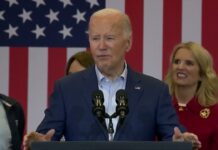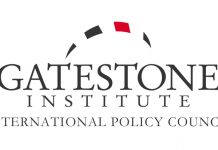As students around the nation are returning to school, once they step into the classroom, many will be met with a curriculum that specifically attempts to paint America as the world’s “big bad.”
Anti-American academics and revisionist history such as the laughably false 1619 Project has flooded the education system and teaches students that their country is irredeemably evil throughout its entire existence. One area which has fallen under attack in more recent years is America’s role in ending World War II, which happened 76 years ago on Aug. 15, 1945.
Pundits and academics now point to World War II and say that America was nearly as bad, if not worse, than the nations they were fighting. Revisionists claim that “the truth is that nobody acquitted themselves particularly well during the war.” In particular, the use of the atomic bombs to end the war has been highlighted as one of the major “sins” of America during World War II. For example, the AP U.S. History standards in 2014 (pdf) declared that the atomic bomb “raised questions about American values.” The public outraged in response to this caused the progressives to change the language in the standards the next year, but the anti-American tone has continued unabated in classrooms across the country.
But what actually happened in the days leading up to Aug. 15, 1945, when Japan finally surrendered and World War II ended? Why were the bombs necessary, and why did the Japanese refuse to surrender even after the first one was dropped?
On Aug. 6, 1945, some 1,870 feet above the city of Hiroshima, the first atomic bomb detonated. Yet the Japanese rulers refused to surrender. Even after the second bomb hit Nagasaki on Aug. 9, the Japanese Imperial Council still could not agree whether to surrender or not with the vote being three to three. Over the state propaganda radio they reassured the citizens to “keep high spirits firm and predicted a defense for the bomb would be developed,” according to “The Bulldozer: the magazine of Combined Operations.”
Finally, the emperor—who was typically little more than a ceremonial pawn in the hands of the military leaders—stepped forward and cast his vote to surrender. This decision was made over the cries of the new national slogan that had been spreading organically across Japan—“Hundred Million Die Together.” In the Emperor’s surrender message to Japan he could only muster up the courage to admit that, “the war situation has developed not necessarily to Japan’s advantage.”
Finally, after almost 10 years of relentless Japanese military radicalism throughout the Pacific and Asia, their extremist regime was at an end. From the beginning of Second Sino-Japanese War in 1937, the Japanese military and government had slaughtered millions of innocents as they grasped at resources, land, and power. The list of atrocities committed by the Japanese army during this period are as shocking as they are overlooked.












































